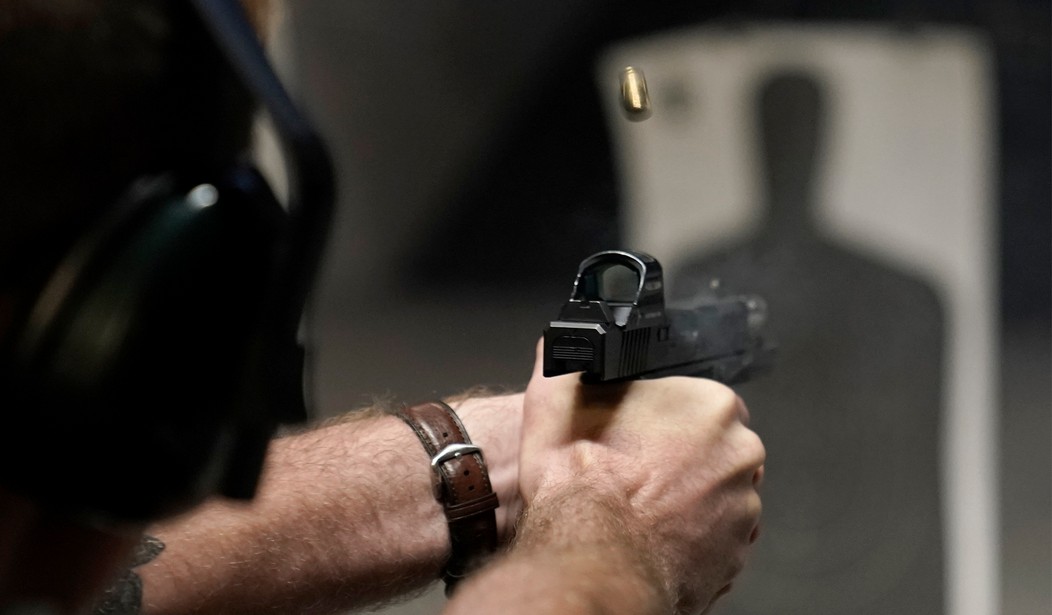A recent op-ed in the New York Times shows once again that the anti-gunner lobby isn’t sending their best. Not only did the author peddle the usual ignorant arguments, but he made a rather bizarre recommendation to those who own firearms because they are concerned about home invasions.
Columnist Nicholas Kristof penned a piece claiming that having a firearm in one’s home raises the likelihood of murder. It was a quintessential parroting of one of the anti-gunner lobby’s favorite talking points.
The article highlights the deadly consequences of guns in the wrong hands in the United States, where an estimated 450 million guns are in circulation. The author argues that the perception that owning a gun makes us safer has led to a dangerous cycle of increased gun purchases, rising gun violence, fear, and more gun purchases.
Kristof also references recent tragedies, such as a 16-year-old Black boy shot when he went to the wrong house, a 20-year-old woman killed when she and her friends drove to the wrong address, and two cheerleaders shot after getting into the wrong car in a parking lot, highlight the grave consequences of this gun culture.
The article argues for the usual “common-sense” gun measures to reduce gun deaths, such as universal background checks, safe storage requirements, raising the minimum age for private gun sales to 21, and enforcing a ban on gun possession by individuals with a history of stalking or violent misdemeanors. The article also suggests adopting California’s successful experiment with background checks for buying ammunition, as California has seen a gun death rate 38 percent below the national average after implementing a number of smart gun measures.
But later in the piece, Kristof attempts to address concerns over home invasions and other dangerous situations. He wrote:
We might encourage homeowners who feel unsafe to get bear spray instead of a gun. As a backpacker, I carry bear spray in grizzly country because it’s more effective than a handgun at stopping one of these bears if it charges; the same may be true of stopping a home invader, and certainly the consequences of a mistake aren’t deadly.
Yes, you read that right. Kristof suggests keeping bear spray in your home to fend off would-be assailants because it works against Winnie the Pooh. The fact that he obviously has not considered how that might work out if a home intruder is carrying a firearm shows that he is yet another anti-gunner who probably should not even be participating in the gun debate.
As usual, there are several flaws in Kristof’s arguments.
For starters, the article does not fully consider the complexity of addressing the underlying factors that contribute to gun violence, such as mental health, poverty, and systemic inequality. Blaming gun ownership alone for the high rate of gun violence in the United States oversimplifies a complex issue and ignores the need for comprehensive solutions that address the root causes of violence. Moreover, other than the silly bear spray recommendation, Kristof fails to detail how Americans – especially those living in high-crime areas – should protect themselves in the event of a home invasion.
Even further, while Kristof highlighted recent cases in which lawful gun owners used their firearms irresponsibly, he failed to explain how the gun control measures he suggested would have prevented any of the crimes he mentions. Indeed, as far as we know, the people who misused their guns obtain them legally. But there is a reason why he did not offer an explanation, isn’t there. Nothing he proposed would have done a single thing to stop these incidents, nor would they stop the mass shootings that his ilk exploit in the effort to disarm the public.
Many gun owners cite self-defense as a primary reason for owning a firearm. For individuals who live in high-crime areas or have concerns about personal safety, owning a gun can provide a sense of security and a means of protection. In some cases, the mere presence of a gun may deter potential criminals from committing a crime, preventing a violent encounter from escalating.
Moreover, guns can be especially critical for vulnerable populations, including victims of domestic violence. Research has shown that in cases of domestic violence, the presence of a firearm in the home can serve as a deterrent and provide a means of protection for victims. In situations where restraining orders or law enforcement interventions may not be immediately effective, having a firearm can be a crucial tool for victims to defend themselves and their families.
It is also worth noting that in many instances where guns are used for self-defense, shots are not fired, and no one is harmed. The mere display of a firearm can often be enough to deter an attacker and prevent violence without shots being fired. However, such incidents are not always captured in statistics or reported in the media, leading to an incomplete understanding of the role of guns in self-defense situations.
In other words, Kristof’s arguments fall flat when subject to a modicum of scrutiny. The cold reality that people like Kristof want us to ignore is that the government is not going to protect us, and neither is bear spray. There is no valid reason why responsible people should not possess firearms in and outside of the home, which is why more people are becoming gun owners.












